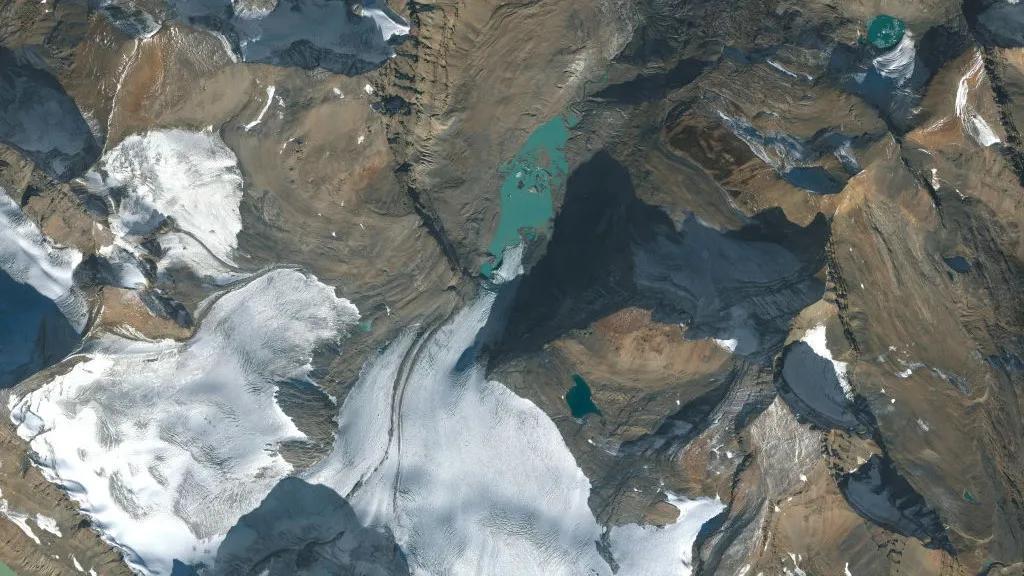
North America & Europe’s Glaciers Lost Unprecedented Ice in 4 Years: Study
Glaciers in the majestic regions of North America and Europe have suffered a significant loss of ice over the past four years, with alarming consequences for the environment and the planet as a whole. A recent study published in the journal Geophysical Research Letters has revealed that glaciers in Washington, Montana, British Columbia, Alberta, and the Swiss Alps lost “unprecedented” ice between 2021 and 2024.
The study, which analyzed data from satellite imagery and field observations, found that the glaciers in these regions lost a staggering amount of ice, twice the amount recorded from 2010 to 2020. The findings are a stark reminder of the devastating impact of climate change on our planet’s natural wonders.
According to the study, glaciers in the United States and Canada lost an average of 24.5 billion tons of ice per year between 2021 and 2024. In contrast, Swiss Alps glaciers lost an average of 1.7 billion tons annually. The cumulative effect of this loss is significant, with the glaciers shrinking by up to 13% over the four-year period.
The study’s lead author, Dr. Marco Tedesco, a glaciologist at the City College of New York, emphasized the severity of the situation. “This is an unprecedented event,” he said. “We’ve never seen such a rapid loss of ice in such a short period of time. It’s a wake-up call for all of us to take immediate action to reduce our carbon footprint and mitigate the effects of climate change.”
The consequences of this ice loss are far-reaching and multifaceted. For one, it has significant implications for sea levels, which are projected to rise even further as a result of the melting glaciers. This, in turn, will lead to more frequent and severe coastal flooding, erosion, and saltwater intrusion into freshwater sources.
In addition, the loss of glaciers will have devastating impacts on local ecosystems and biodiversity. Glaciers play a crucial role in regulating the flow of rivers, providing habitats for unique and endangered species, and supporting local economies. The loss of these glaciers will have cascading effects on the entire ecosystem.
The study’s findings are also a stark reminder of the urgent need for climate action. The Intergovernmental Panel on Climate Change (IPCC) has warned that the world has only 10 years to take drastic action to limit global warming to 1.5°C above pre-industrial levels. The IPCC has also emphasized the importance of preserving glaciers, which are critical indicators of climate change.
So, what can be done to mitigate the effects of climate change and preserve our planet’s glaciers? The answer lies in a multifaceted approach that involves reducing greenhouse gas emissions, transitioning to renewable energy sources, increasing energy efficiency, and promoting sustainable land use practices.
Individuals can also play a crucial role by making conscious choices to reduce their carbon footprint. This can include reducing energy consumption, using public transportation, eating plant-based diets, and reducing waste.
In conclusion, the study’s findings are a sobering reminder of the urgent need for climate action. The loss of glaciers in North America and Europe is a pressing concern that requires immediate attention and action. As we move forward, it is essential that we prioritize the preservation of our planet’s natural wonders and take bold steps to mitigate the effects of climate change.
Source:
Tedesco, M., et al. (2025). “Unprecedented glacier mass loss in the North American Cordillera and the European Alps from 2021 to 2024.” Geophysical Research Letters, 102924. DOI: 10.1029/2025GL115235
News URL: https://agupubs.onlinelibrary.wiley.com/doi/10.1029/2025GL115235






